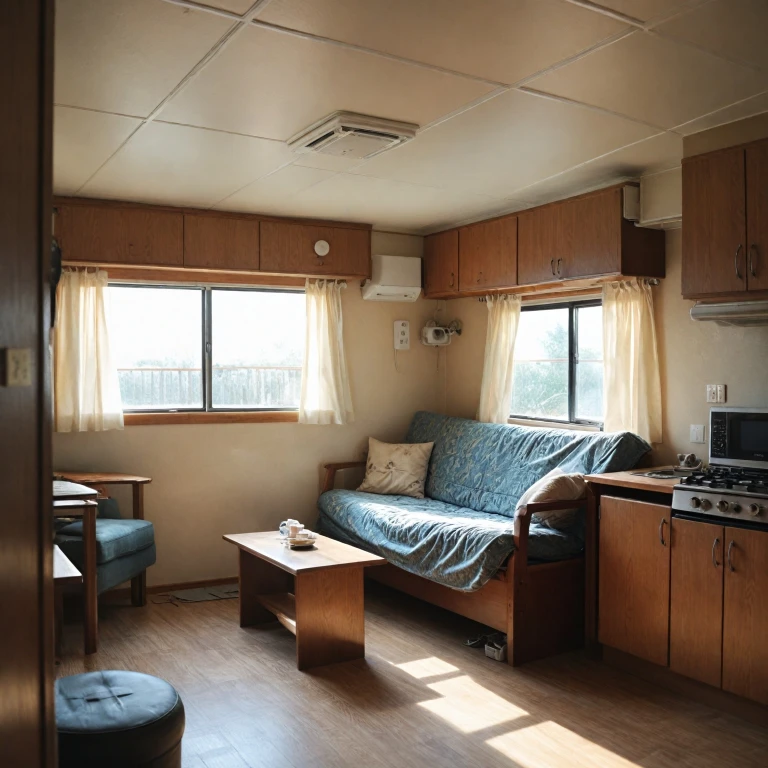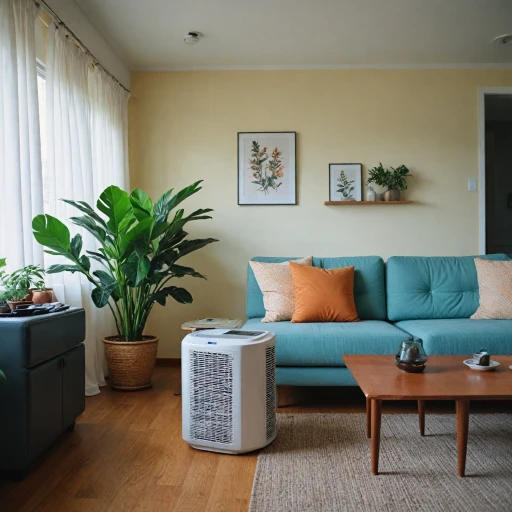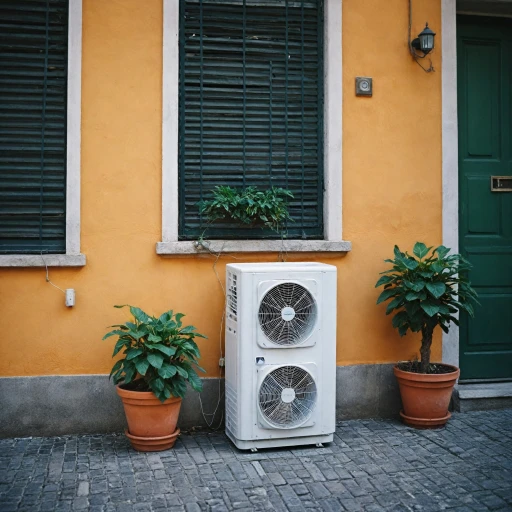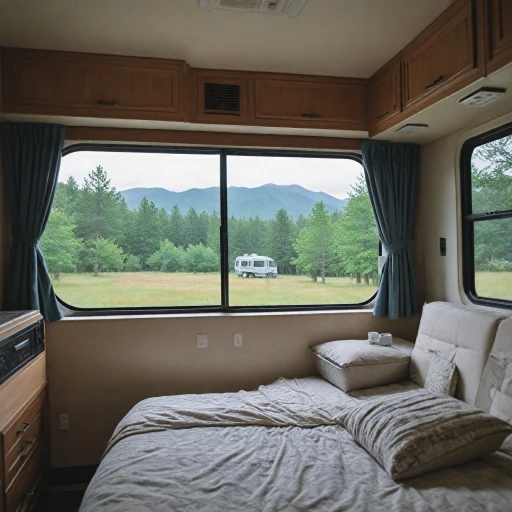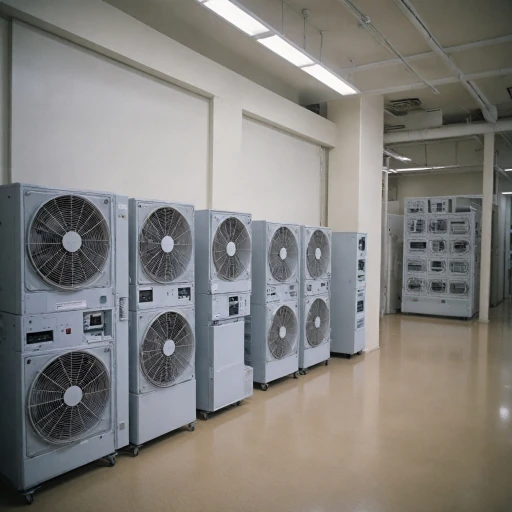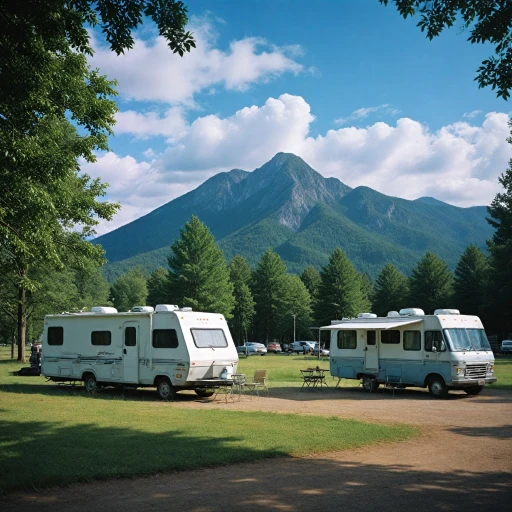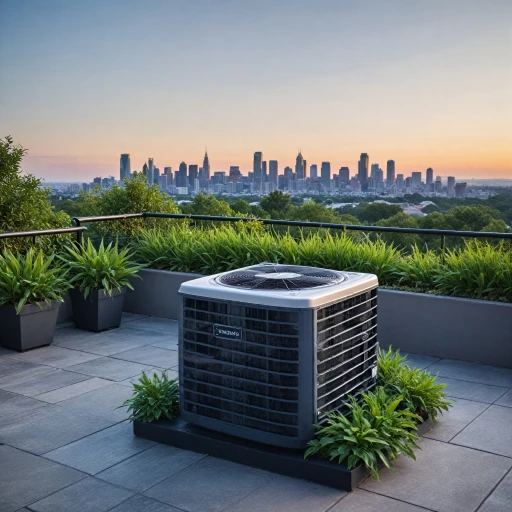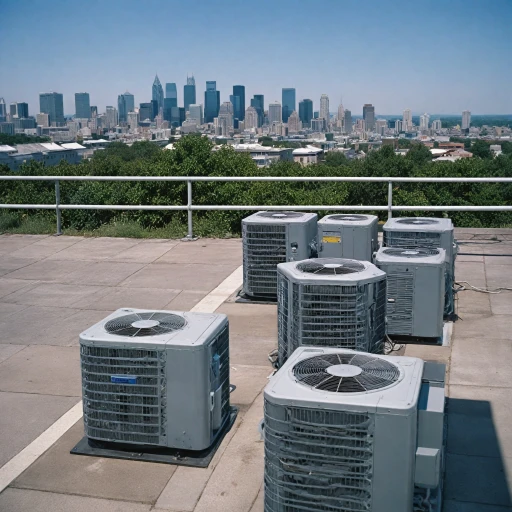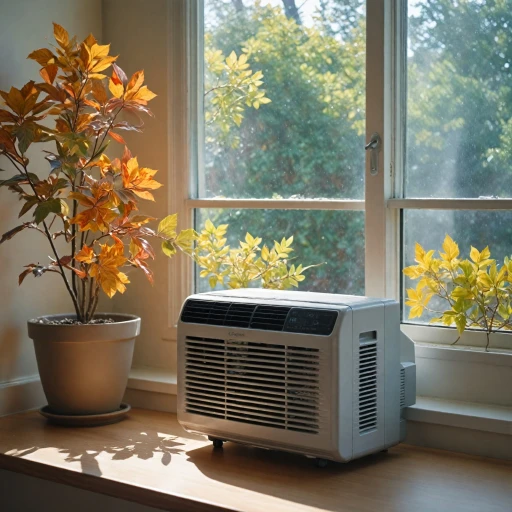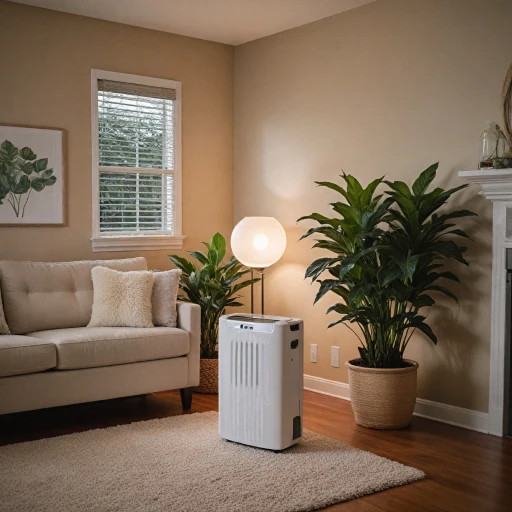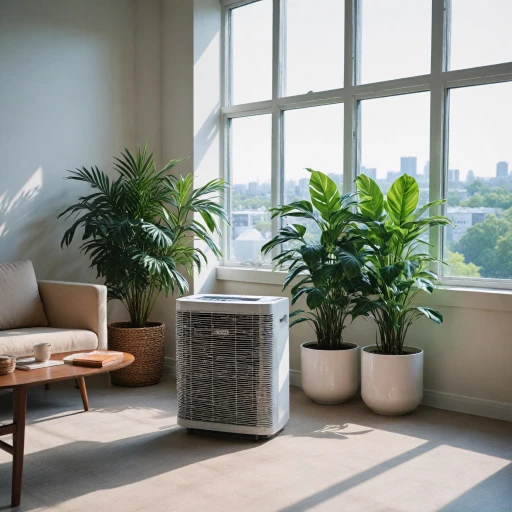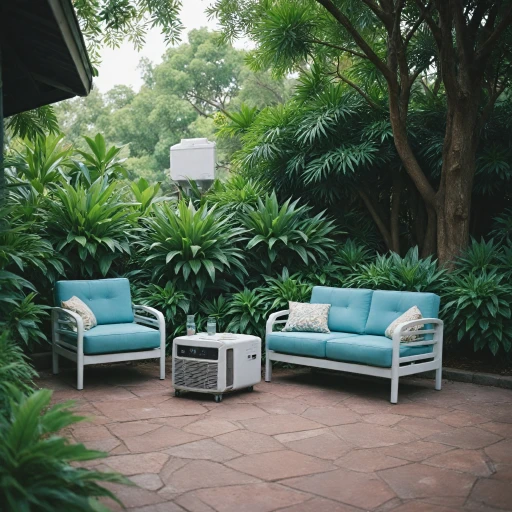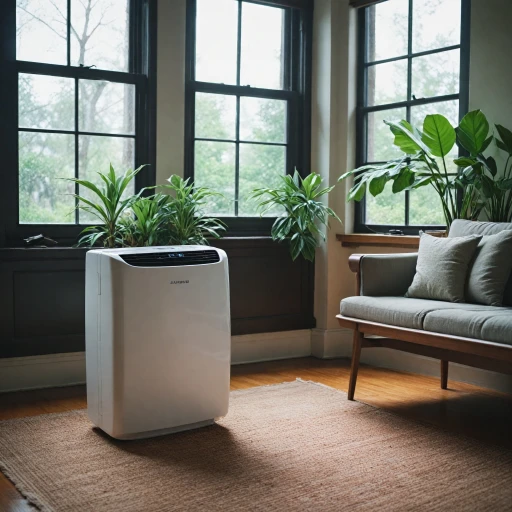
Understanding Mobile Home Cooling Needs
Your Mobile Home's Unique Cooling Demands
Understanding the distinct cooling needs of a mobile home is critical for selecting the right portable air conditioner. These homes require efficient cooling solutions due to their unique structural characteristics and limited space. The metal construction often found in mobile homes can lead to rapid heat gain, making it imperative to choose a cooling system that offers both efficiency and effectiveness.
While considering portable air conditioners, it is vital to account for factors such as the home’s square footage, insulation quality, and air circulation. The SEER (Seasonal Energy Efficiency Ratio) rating of an air conditioner indicates its energy efficiency, which can be crucial for maintaining cost-effective cooling throughout the warmer months.
Moreover, the compact nature of mobile homes might demand an air conditioner with a smaller footprint, which is where having a detailed knowledge of product sizing becomes beneficial. The importance of factors like the appropriate tonnage of the unit should also be emphasized to avoid under or overcooling.
For a deeper dive into efficient cooling solutions tailored for the unique needs of mobile homes, consider this efficient cooling solutions guide as a helpful resource.
Finally, while selecting a unit, it’s essential to review the product’s shipping policy details, as this impacts installation logistics. Some items may qualify for free shipping, while others may incur remote area surcharges or require unique arrangements such as lift gate curbside delivery. Understanding these policies ensures a smooth transition from purchase to installation, making sure your mobile home stays comfortable year-round.
Types of Portable Air Conditioners
Exploring Portable Air Conditioner Options for Mobile Homes
When considering air conditioning solutions for your mobile home, portable air conditioners present a convenient and efficient option. These units offer flexibility, allowing you to move them to different rooms as needed, while avoiding permanent installations that might not be feasible in mobile home settings. Portable air conditioners come in various types, catering to different needs and preferences. Understanding these types will assist you in making an informed decision about which one suits your home best.- Single-Hose Units: This type of air conditioner uses one hose to exhaust hot air from the room. It is generally more affordable and easier to set up. However, it may not be as efficient as dual-hose models, especially in larger spaces.
- Dual-Hose Units: Here, one hose brings in air from outside, and the other expels the hot air. This setup allows for faster cooling and typically more efficient performance, making it suitable for larger mobile homes or more extreme climates.
- Revolv Units: Specifically designed for mobile homes, Revolv air conditioners integrate seamlessly into the existing HVAC systems. They are known for their efficiency and are a popular choice for those looking to replace older systems.
- Models with Heat Options: For year-round comfort, consider an air conditioner that also functions as a heater. While mobile homes might benefit from this dual feature, it's crucial to check the energy efficiency and compare it with separate units.
- Remote-Controlled Models: For added convenience, some portable air conditioners come with remote controls, allowing you to adjust the temperature from the comfort of your chair. This is especially useful in larger mobile homes where the unit might be placed in a different room.
Energy Efficiency and Cost Considerations
Energy Usage and Budget-Friendly Options
When selecting a portable air conditioner for your mobile home, energy efficiency and cost are significant factors to consider. Understanding the energy consumption through SEER (Seasonal Energy Efficiency Ratio) ratings is a great place to start. Higher SEER ratings indicate better energy efficiency, which can lead to reduced electricity bills. Portable air conditioners with energy-saving features may come with labels such as "home seer" or "seer single stage refrigerant." These features help in determining which units are more cost-effective in the long run.
Price is always a concern, especially when it comes to mobile home air conditioners. While upfront costs are a major consideration, sometimes the least expensive option may not be the most economical. Be sure to compare the long-term savings from investing in a more efficient air conditioner against initial purchase costs. Look for models that qualify for free shipping or consider those with specific shipping policies, such as curbside delivery or lift gate assistance, as these options can impact the final purchase price. Details like semi truck delivery for heavier items, lbs shipping policies, and applicable applies full shipping can also affect the overall cost.
It's crucial to carefully examine the shipping policy details, particularly if you reside in a remote area or region with area surcharges. Ensure your selected product can be shipped contiguous or curbside remote without additional costs. To understand more on this topic, explore this guide on portable air conditioner power consumption, which provides insights into making cost-effective choices.
Installation and Maintenance Tips
Optimizing Installation and Ensuring Proper Maintenance
When it comes to portable air conditioners for your mobile home, setting up and maintaining the unit properly is key to ensuring efficient cooling and a long product life. Whether you’re addressing specific air cooling needs or trying to increase energy efficiency, the following tips will guide you through installation and upkeep.- Understand Your Shipping Options: Before receiving your unit, become familiar with the shipping policy and any potential surcharges. Many products qualify for free shipping, but be aware of any remote area surcharges or the need for a semi truck for delivery. Items that weigh heavier, like those over certain lbs, might also qualify for a full shipping service.
- Installation Tips:
- Location Matters: Choose a spot that allows optimal air circulation. Avoid placing the air conditioner near heat-generating appliances or direct sunlight, which can degrade performance.
- Secure Venting: Proper venting through a window or a door is crucial. Ensure the exhaust hose is as short and straight as possible to enhance efficiency and keep the mobile air conditioner from overworking.
- Use a Lift Gate if Necessary: For heavier models, a lift gate can assist with delivery, especially important when working at ground curbside levels in mobile homes.
- Regular Maintenance:
- Filter Care: Regularly clean or replace the filter to maintain air quality and efficiency. Clogged filters can restrict airflow and impair the system’s ability to cool adequately.
- Check Refrigerant Levels: For units with refrigerant, making sure the levels are adequate is important to avoid overworking the single stage refrigerant system.
- Write Reviews and Track Issues: Sharing your experience by writing a review can help others compare and understand potential issues with certain brands. It’s also useful for tracking your unit’s performance over time.
- Consider Remote Management Options: If your mobile home air conditioner model includes remote management features, familiarize yourself with them. These can offer convenience and, in some cases, optimize energy usage by controlling the seer ratings from afar.
Common Challenges and Solutions
Overcoming Installation Obstacles
When it comes to installing portable air conditioners in mobile homes, several common challenges arise. Here’s a breakdown of issues you might encounter and practical solutions to address them:- Limited Space: Mobile homes often have limited space, so selecting a unit that fits without obstructing movement is crucial. Measure the area where you plan to place your air conditioner, and ensure the dimensions align with the product specifications.
- Energy Efficiency: Choosing an energy-efficient unit, like one with a high SEER rating, can help reduce energy costs. Portable air conditioners with a higher SEER number ensure better efficiency, which is vital given the mobile home’s compact nature.
- Ventilation Requirements: Proper ventilation is vital for optimal performance. Ensure your chosen spot allows easy access for the exhaust hose to vent outside, keeping the mobile home cool.
- Installation Complexity: Some units require professional installation. Consider if the unit comes with complete installation kits or needs additional items lbs shipped, which could include charges like lift gate or surcharges. Determine if your shipping policy covers these or if additional area surcharges apply.
Maintenance Tips for Longevity
To ensure your portable air conditioner remains efficient and lasts longer, regular maintenance is necessary. Here are key maintenance habits:- Clean Filters Regularly: Frequent cleaning of filters prevents dust buildup, improving air quality and efficiency.
- Check Refrigerant Levels: Ensure you have adequate refrigerant for proper cooling. Most units require a single stage refrigerant system check-up annually.
- Monitor Drainage: Successful moisture removal is paramount. Follow the manual’s guidelines for drainage system checks, especially if your setup involves solutions like ground curbside or home seer units.
Top Brands and Models for Mobile Homes
Leading Mobile Home Air Conditioner Brands
When selecting the ideal portable air conditioner for mobile homes, it's crucial to consider the reputation and reliability of the brand. Some brands have established themselves as leaders in manufacturing effective and efficient cooling solutions specifically designed for varied home settings. Here's a breakdown of top brands and what they offer for mobile homes:- Revolv: Known for its robust and durable air conditioners, Revolv offers units with high SEER ratings, ensuring energy efficiency. Their products often include advanced features, such as remote control access and dual-stage refrigerant capabilities, ideal for mobile homes with specific cooling requirements.
- Home SEER: This brand is synonymous with energy-efficient air conditioning units that cater well to mobile homes. Offering both single-stage and multi-stage options, Home SEER ensures that you get optimal performance, reducing energy consumption and subsequently lowering your bills.
- Shipping Policy Considerations: When considering these brands, it's important to factor in the shipping policies. Some products may qualify for free shipping, especially if they are shipped ground curbside within the contiguous United States. However, be aware of potential surcharges for remote areas or if a lift gate is necessary for delivery because some items, weighed in lbs, might require semi-truck deliverance.
- Customer Reviews: Before finalizing a purchase, read through customer reviews to understand user satisfaction and any common issues experienced with a specific model. This helps in writing an informed review after your purchase and installation.

